Tyrosine Kinase
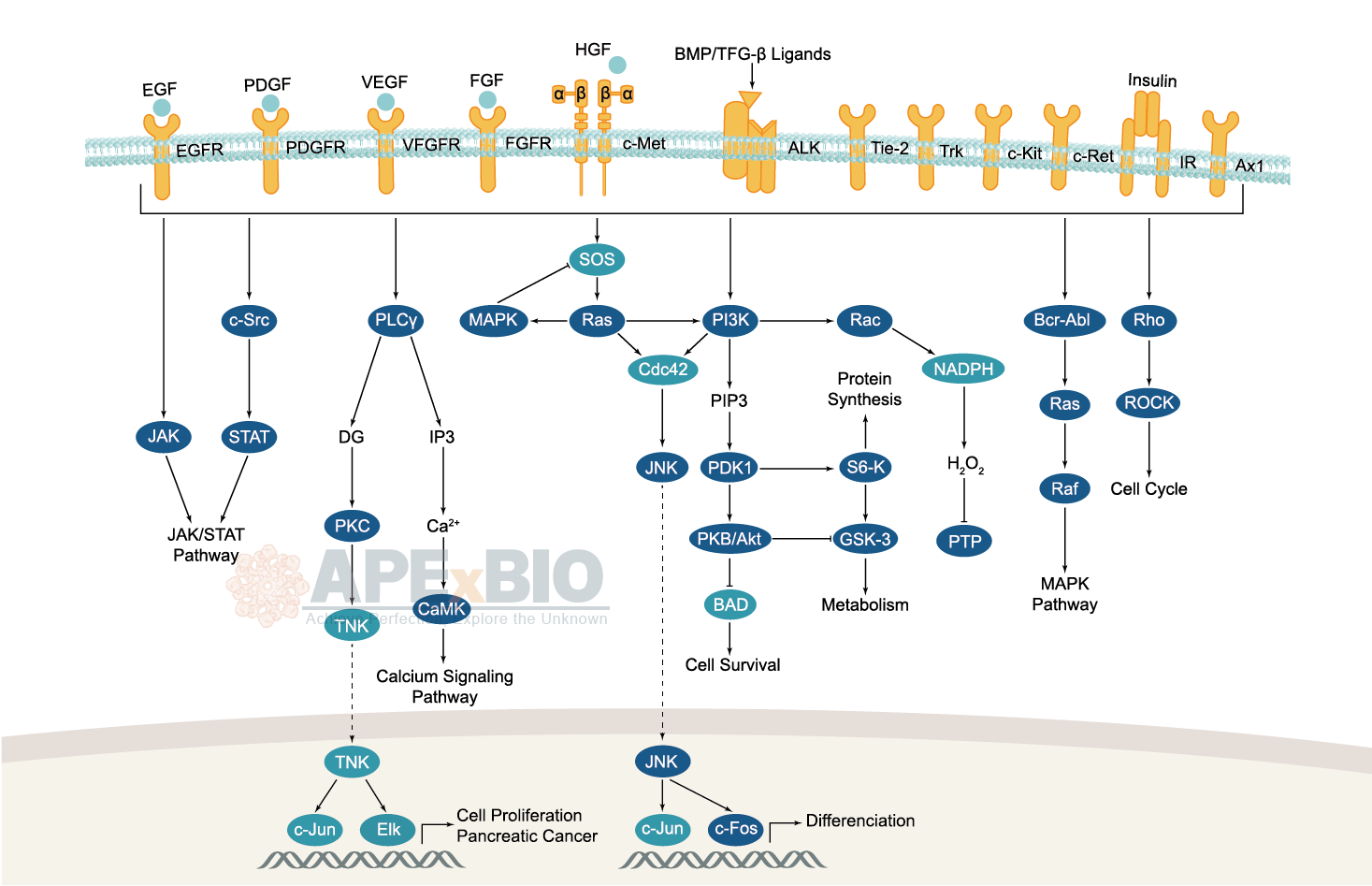
Receptor tyrosine kinases bind to extracellular ligands/growth factors, which promotes receptor dimerization and autophosphorylation of receptor tyrosine residues. This triggers a cascade of downstream events through phosphorylation of intracellular proteins that ultimately transduce the extracellular signal to the nucleus, causing changes in gene expression. Receptor tyrosine kinases include EGFR/ErbB, PDGFR, VEGFR, FGFR and MET subfamilies etc. Dysfunctions in tyrosine phosphorylation are linked to oncogenic transformation. In additions, various adaptor and effector proteins couple to carboxy-terminal of an active kinase. For instance, binding of the GRB2 adaptor protein activates EGFR and MAPK/ERK signaling.
Non-receptor tyrosine kinases involve many well-defined proteins (e.g. the Src family kinases, c-Abl, and Jak kinases) and other kinases which regulates cell growth and differentiation. For example, Src family kinases are curial for activating and inhibitory pathways in the innate immune response.
-
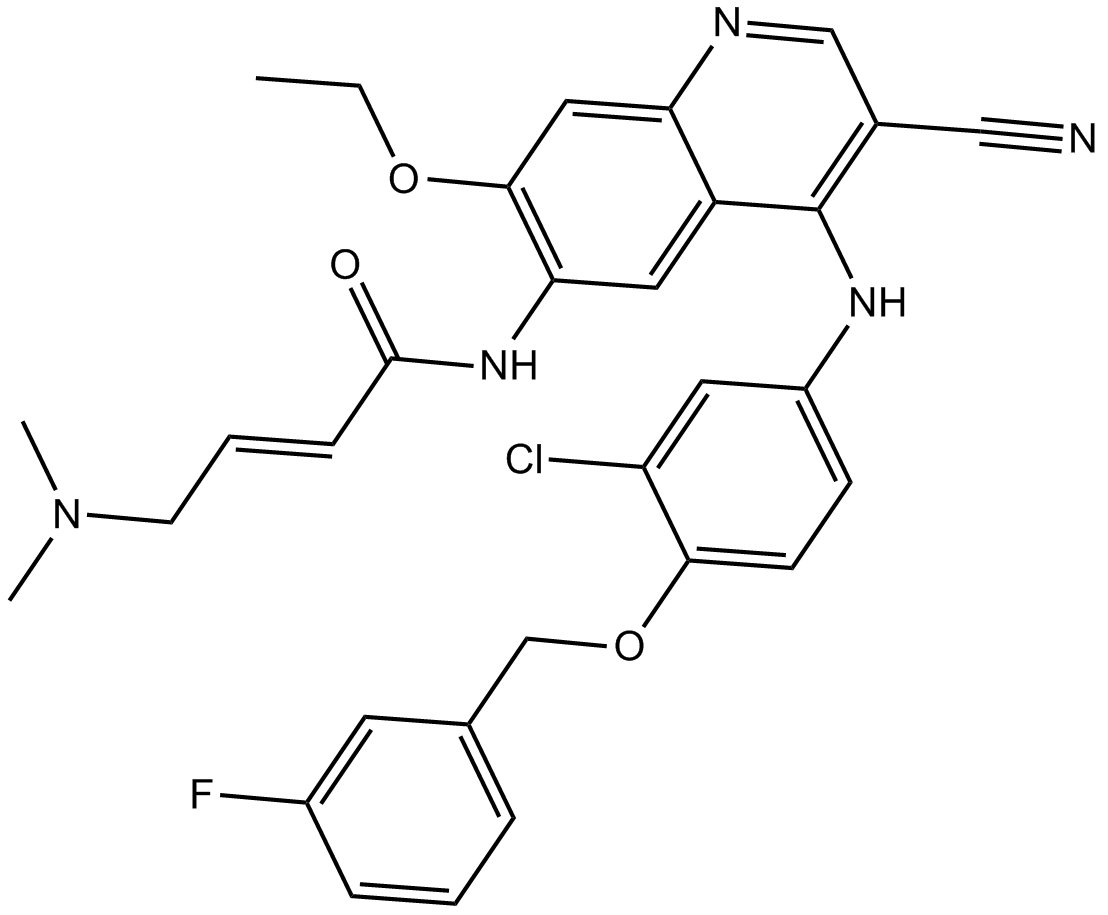 B5456 HKI 357Summary: irreversible inhibitor of ErbB2 (HER2) and EGFR
B5456 HKI 357Summary: irreversible inhibitor of ErbB2 (HER2) and EGFR -
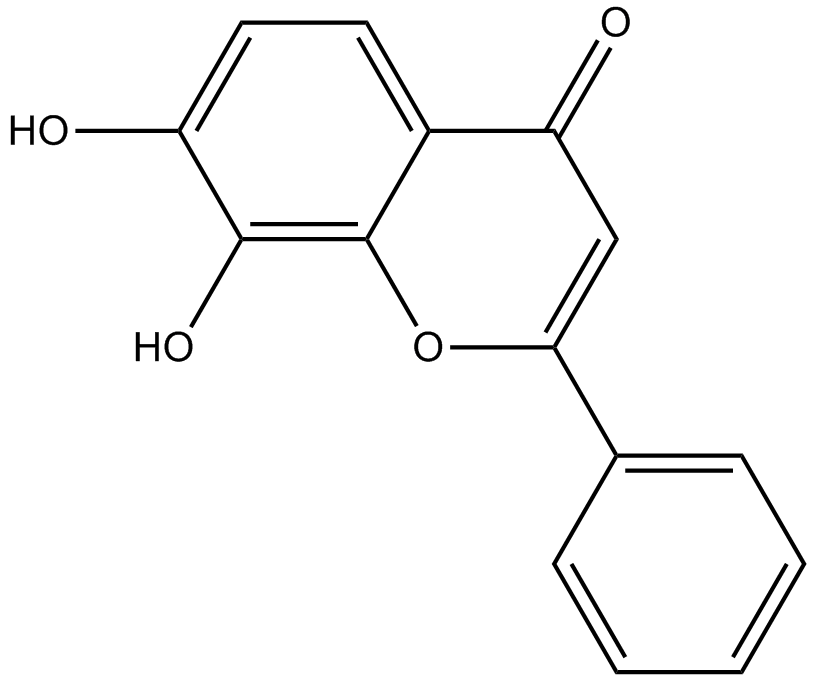 B5484 7,8-DihydroxyflavoneSummary: Tyrosine kinase receptor B (TrkB) agonist
B5484 7,8-DihydroxyflavoneSummary: Tyrosine kinase receptor B (TrkB) agonist -
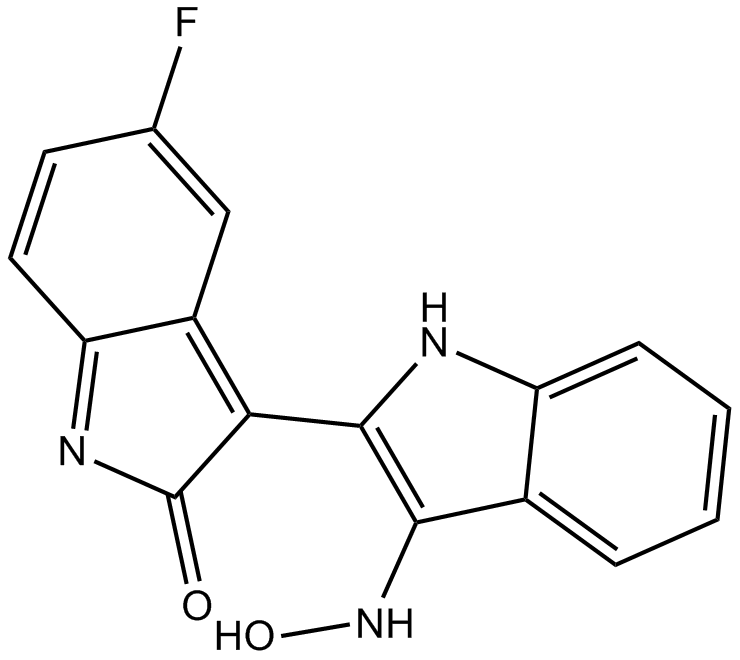 B5516 5'-FluoroindirubinoximeSummary: FMS-like receptor tyrosine kinase-3 (FLT3) inhibitor
B5516 5'-FluoroindirubinoximeSummary: FMS-like receptor tyrosine kinase-3 (FLT3) inhibitor -
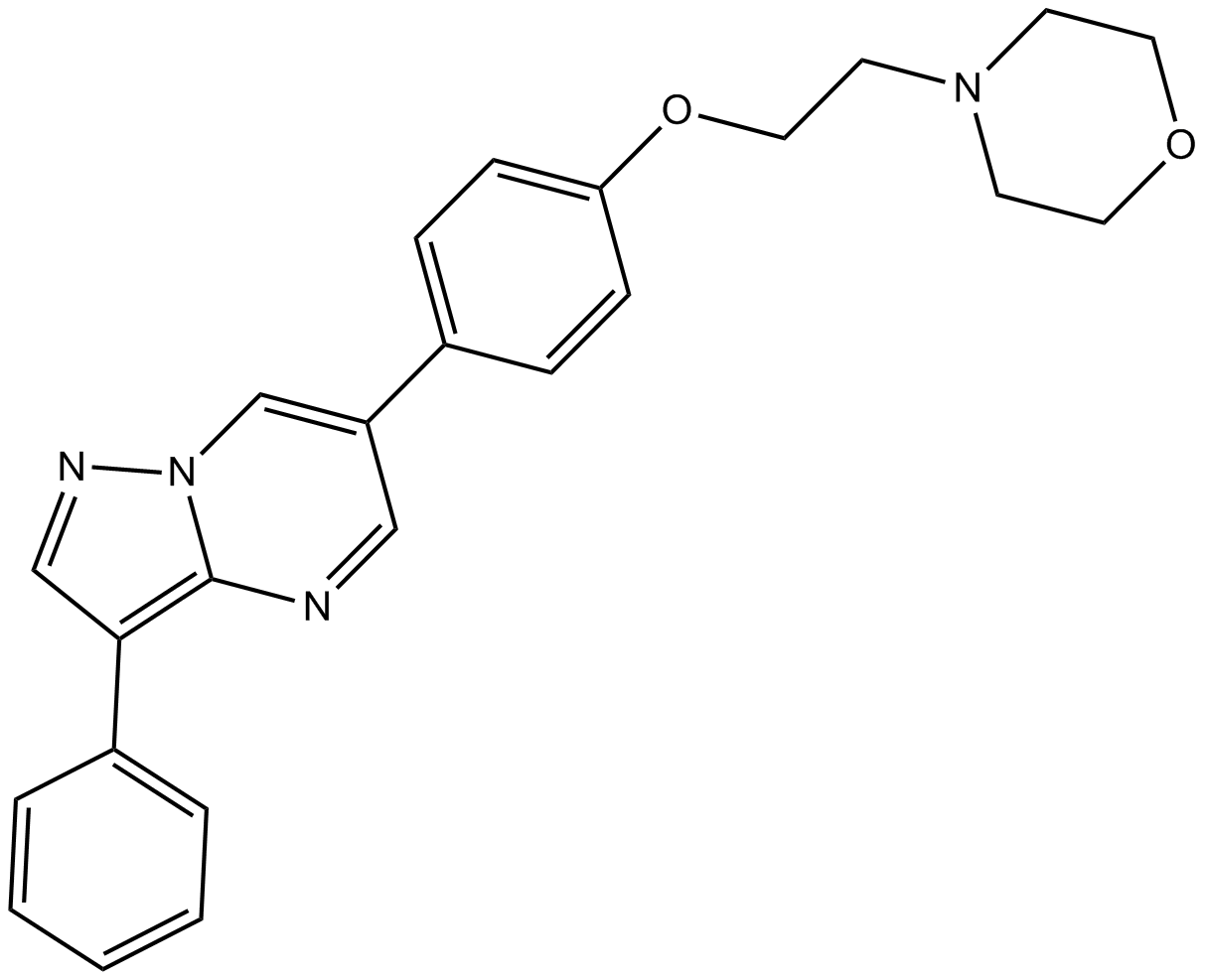 B5611 DMH41 CitationSummary: VEGFR-2 inhibitor
B5611 DMH41 CitationSummary: VEGFR-2 inhibitor -
 B5621 Y 11Summary: focal adhesion kinase (FAK) inhibitor
B5621 Y 11Summary: focal adhesion kinase (FAK) inhibitor -
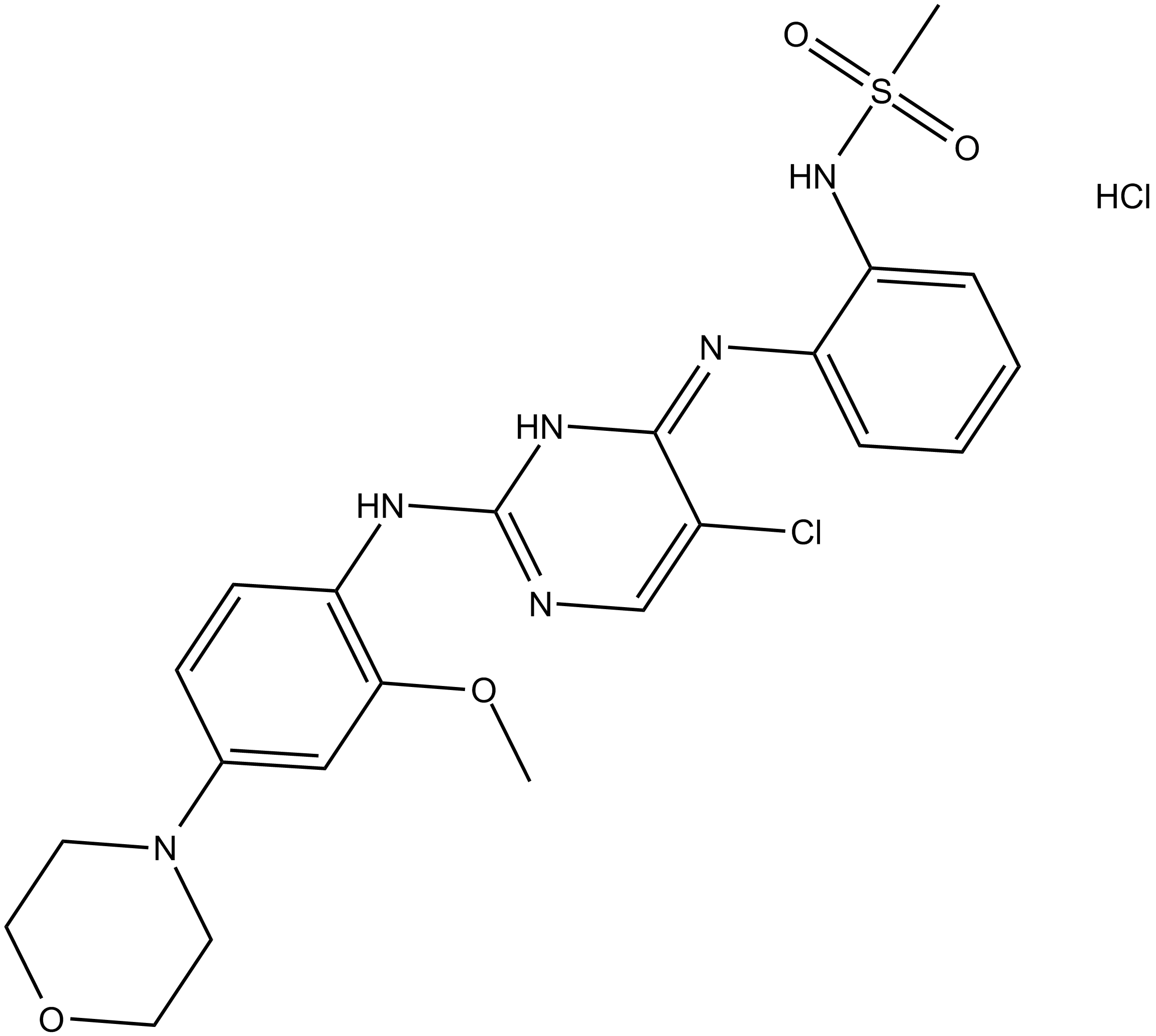 B5633 CZC 54252 hydrochlorideSummary: LRRK2 inhibitor
B5633 CZC 54252 hydrochlorideSummary: LRRK2 inhibitor -
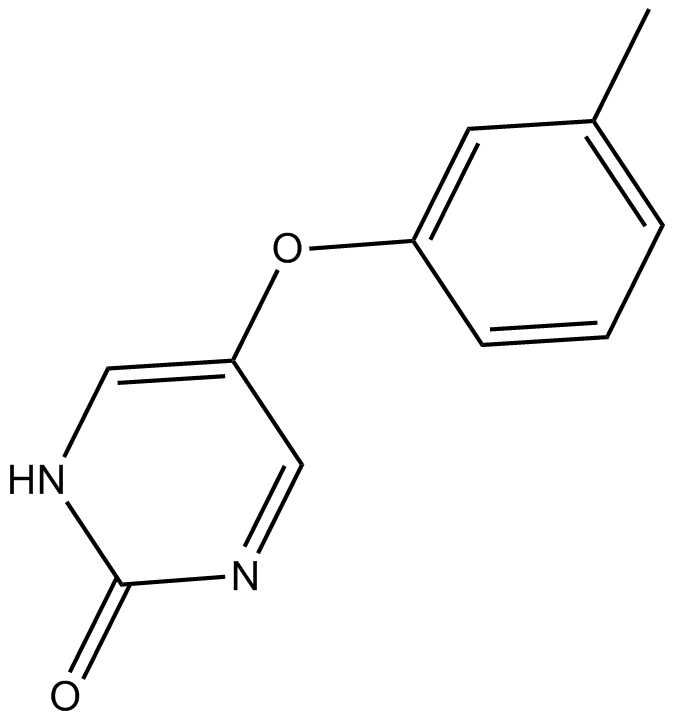 B5648 MLR 1023Target: Lyn kinaseSummary: allosteric activator of Lyn kinase
B5648 MLR 1023Target: Lyn kinaseSummary: allosteric activator of Lyn kinase -
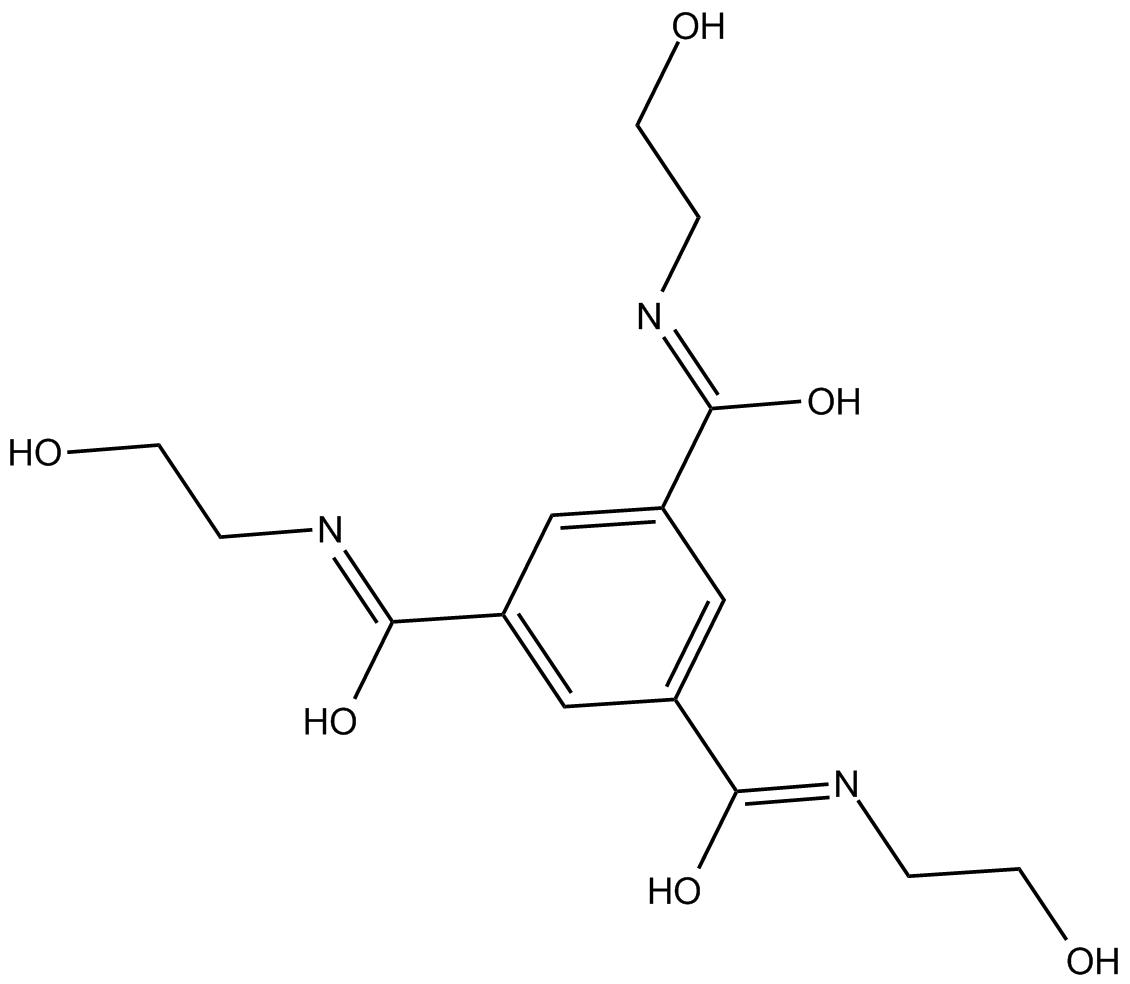 B5655 LM 22A4Summary: tropomyosin-related kinase B (TrkB) agonist
B5655 LM 22A4Summary: tropomyosin-related kinase B (TrkB) agonist -
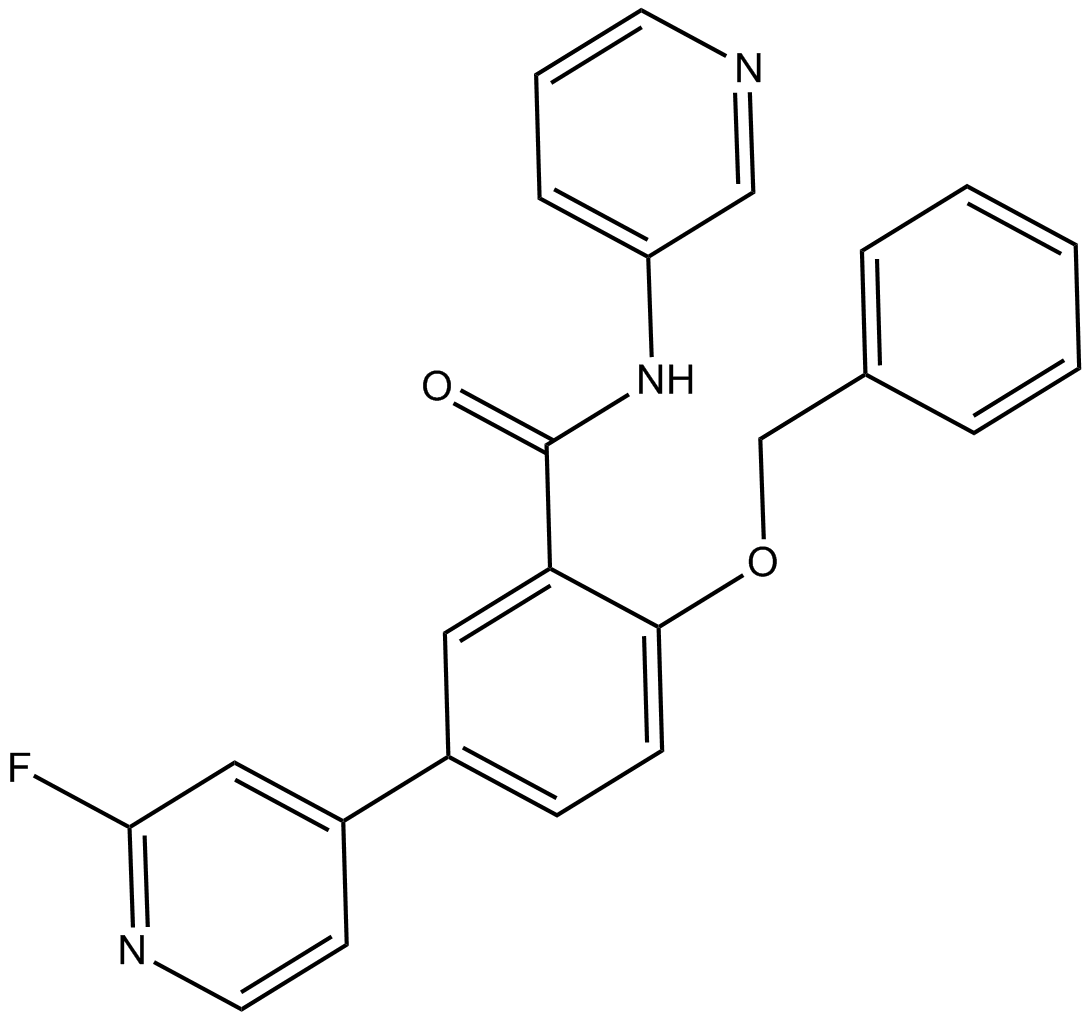 B5659 GSK2578215ASummary: LRRK2 inhibitor
B5659 GSK2578215ASummary: LRRK2 inhibitor -
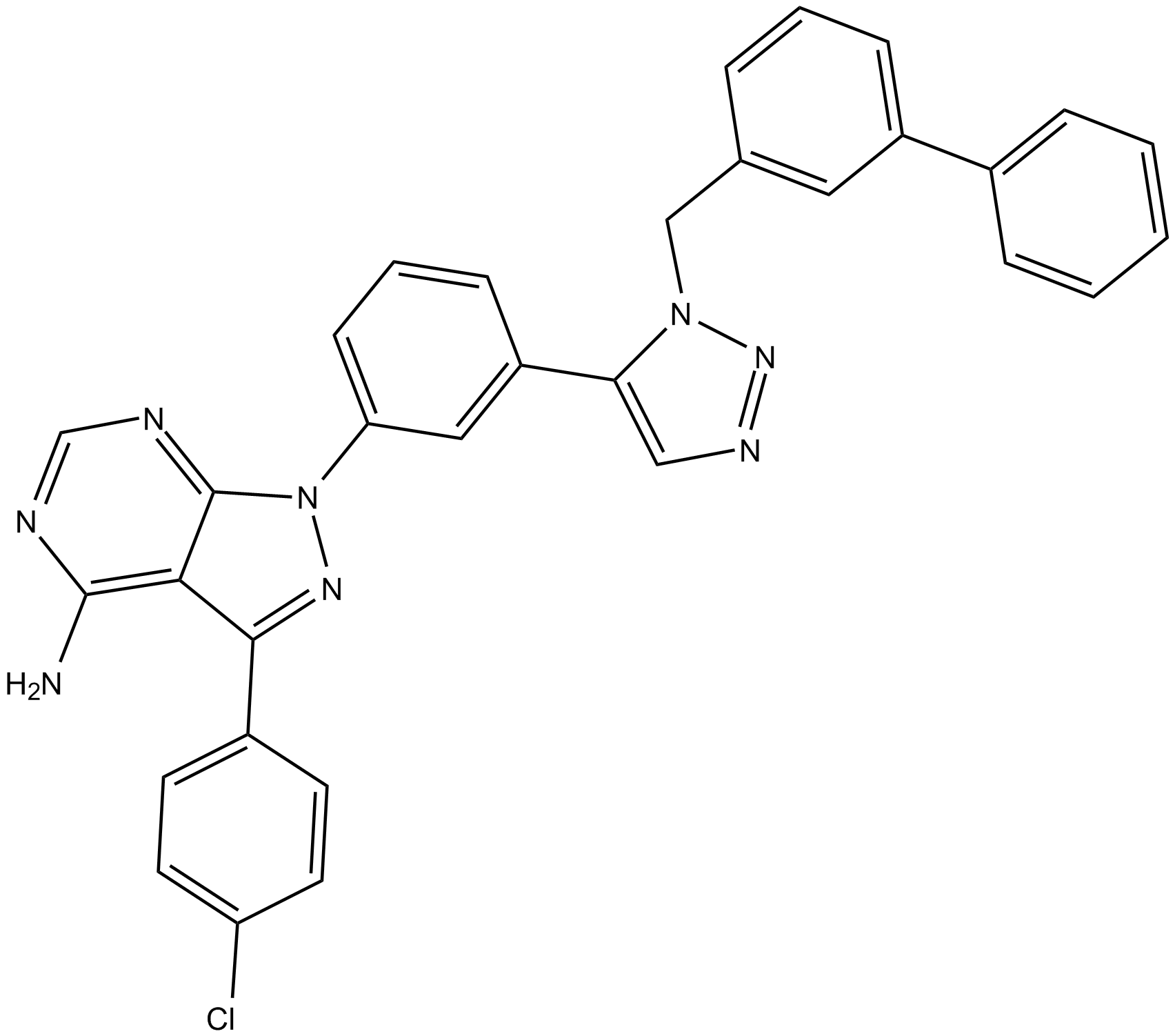 B5673 KB SRC 4Target: SrcSummary: c-Src inhibitor
B5673 KB SRC 4Target: SrcSummary: c-Src inhibitor

